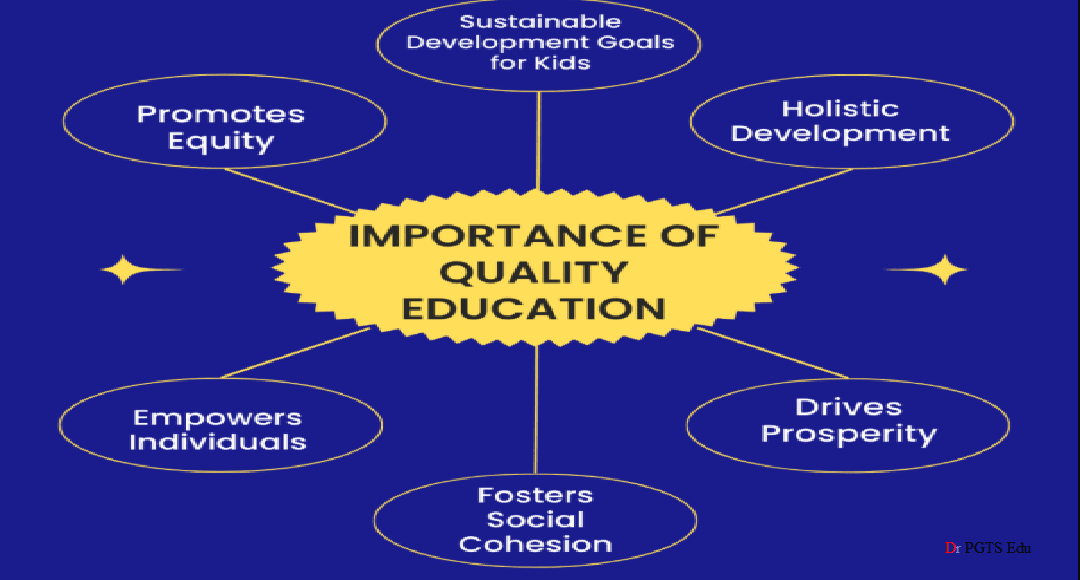School Education Quality plays a crucial role in shaping the future of individuals and nations alike. A strong education system ensures intellectual development, fosters innovation, and prepares students for the evolving demands of the global economy. Across the world, different countries have developed their own unique approaches to schooling, leading to variations in education quality. In this article, we explore the top 10 countries with the best school education quality, their ranking, the best school in India, and an analysis of the qualities, functions, types, merits, and demerits of education systems worldwide.
School Education Quality:
School education quality is determined by several factors, including:
Curriculum Strength – A well-structured and comprehensive curriculum ensures students gain essential knowledge and skills.
Teacher Quality – Highly qualified and well-trained teachers contribute to better learning outcomes.
Infrastructure and Facilities – Modern classrooms, libraries, laboratories, and digital tools enhance learning.
Student Performance – International assessment tests such as PISA (Programme for International Student Assessment) help gauge student competencies.
Government Policies – Effective education policies and reforms play a vital role in maintaining quality standards.
Equity and Accessibility – A good education system ensures equal opportunities for all students, regardless of socioeconomic background.
Top 10 Countries with the Best School Education Quality
Based on various education quality indexes and global rankings, here are the top 10 countries with the best school education systems:
1. Finland
Renowned for its student-centric approach, Finland focuses on creativity, critical thinking, and minimal standardized testing. Teachers are highly respected and well-trained.
2. Singapore
Singapore consistently ranks high in international assessments. Its education system emphasizes STEM subjects, high teacher qualifications, and rigorous curriculum standards.
3. South Korea
With a strong focus on discipline and academic excellence, South Korea’s education system is highly competitive. Students excel in mathematics and science globally.
4. Japan
Japan’s education system promotes discipline, ethics, and teamwork. It has a balanced approach between academics and character building.
5. Switzerland
Known for its vocational education programs and emphasis on multilingualism, Switzerland ensures students are well-prepared for the workforce.

6. Netherlands
Dutch education prioritizes interactive and student-centered learning. Schools focus on creativity, independence, and practical knowledge.
7. Canada
With a decentralized education system, Canada offers high-quality education with a focus on inclusivity and innovation.
8. Germany
Germany’s dual education system blends academic learning with vocational training, ensuring students are job-ready upon graduation.
9. United Kingdom
The UK has a well-structured system with strong universities, a mix of public and private schools, and diverse curriculum choices.
10. United States
Despite regional variations, the US offers high-quality education, advanced technology integration, and a wide range of extracurricular opportunities.
School Education Quality in India: Rank and Best School
India ranks among the emerging countries striving to improve school education quality. The nation has made significant progress, especially in higher education, but challenges such as teacher shortages and infrastructure issues remain.
Best School in India
One of the top-ranked schools in India is The Doon School in Dehradun, known for its exceptional academic performance, infrastructure, and holistic approach to education. Other reputed institutions include Delhi Public School (DPS), The Shri Ram School, and Sainik Schools across various states.
Types of Education Systems
- Formal Education – Structured learning in schools, colleges, and universities.
- Informal Education – Learning through life experiences, self-study, and interactions.
- Non-Formal Education – Organized education outside traditional institutions, such as online courses and vocational training.
Merits of a High-Quality Education System
Enhances literacy and knowledge
Prepares students for global competition
Encourages innovation and creativity
Strengthens economic development
Promotes equity and social progress
Demerits of Poor Education Systems
Leads to unemployment and economic disparity
Reduces global competitiveness
Limits critical thinking and creativity
Increases social inequalities
A high-quality education system is vital for individual success and national progress. Countries like Finland, Singapore, and Japan continue to set global benchmarks in schooling excellence. India is making significant improvements and aims to match global standards. By focusing on teacher training, infrastructure, and curriculum enhancements, nations can ensure a brighter future for their students.
Read also: seqi school education quality index

